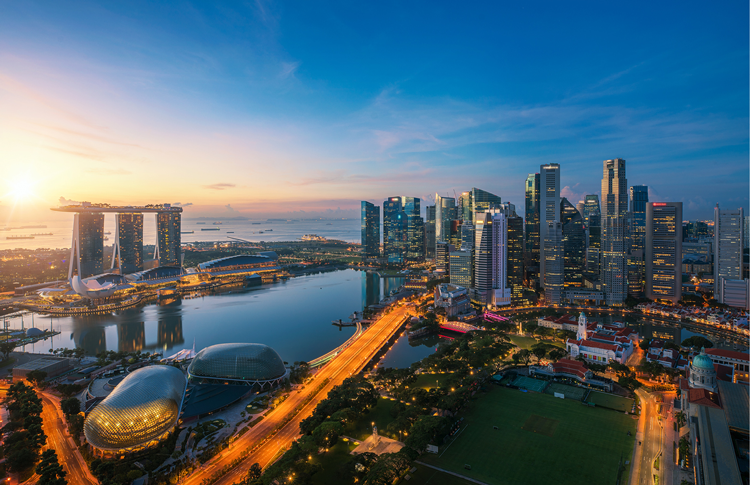
Over the past few years, Singapore has worked diligently to develop its reputation as a hub for technology businesses and a home of innovation. With government support and the infrastructure to underpin this ambition, the city-state is often dubbed “Asia’s Silicon Valley.” But lawyers say while the groundwork is all in place, there are still areas that demand close attention and further development.
Elaine Lew, co-head of Dentons Rodyk’s TMT practice, and partner Desmond Chew say strong government support and varied initiatives have helped to create the right environment for innovation in Singapore, and stimulate the growth of ICT firms.
The country also boasts an IP protection regime that has “consistently been ranked as one of the best in the world,” say Lew and Chew, noting that IP protection is particularly important to the ICT sector “where protection of innovation is fundamental to many of these businesses.”
Other contributing factors in its favour is Singapore’s global talent pool, “significant access to private funding sources,” and a digitally literate population.
Rajesh Sreenivasan, head of the TMT practice at Rajah & Tann Singapore, says the city-state has been rewarded for its investment in positioning itself as a tech hub.
“[Singapore] has one of the largest numbers of regional headquarters for global Fortune 500 companies compared to other Asian cities and is a leading financial centre,” Sreenivasan says, noting it has consistently been ranked as one of the world’s most competitive economies.
Its attractions are “numerous and come mostly by design,” he says, noting that its strategic location, and pro-business environment with policies and processes make it a compelling choice for companies.
But while Singapore has many benefits, there are still limitations it needs to overcome in order to fully cement its position.
One is talent. “There is a limited supply of skilled local talent in the technology sector. With the increase in the number of start-ups and technology firms in Singapore, there is a high demand for technology specialists,” Lew and Chew say.
“However, the pace of technological change has outstripped our educational system. Although the global talent pool is large, Singapore faces stiff competition from other markets for the best of global talent. More training and re-training of technology professionals is required in Singapore. Another potential limitation is the disruption brought by COVID-19, which shows that digital talents can practically work remotely from any jurisdiction. This will further exacerbate the lack of supply, and require Singapore to be even more competitive in trying to attract talents to work on-shore,” the lawyers add.
Sreenivasan agrees, saying that the shortage of tech talent and the situation is likely to worsen following pressures from Singaporeans to slow the inflow of foreigners due to concerns about jobs and overcrowding.
“The competition for talent will also intensify with growing competition from regional countries such as Indonesia, South Korea and Vietnam. These countries are also building thriving start-up communities and ecosystems and could pose challenges for Singapore’s start-up dominance. However, the Singapore Government has implemented policies and worked with private enterprises to grow talent in the tech sector as well as to allow select foreign talent to continue to add to the sector,” Sreenivasan says.
Another challenge on the horizon for tech businesses is a lack of clear regulations - and strong enforcement of regulations - when operating in developing parts of Asia, says Sreenivasan.
“This increases business uncertainty and legal compliance risks. Tech companies are also wary of weak IP protection for their innovations. Singapore has an advantage in having a dynamic legislative framework and operational guidance through regulatory guidelines issued by technology sector regulators such as the Infocomm Media Development Authority (IMDA). These guidelines need to be reviewed and industry feedback sought regularly to ensure relevance and resonance as the pace of change is very high in the tech industry and the regulations need to be updated to ensure growth and attractiveness of Singapore as the tech location of choice in Asia,” Sreenivasan says.
To contact the editorial team, please email ALBEditor@thomsonreuters.com.


